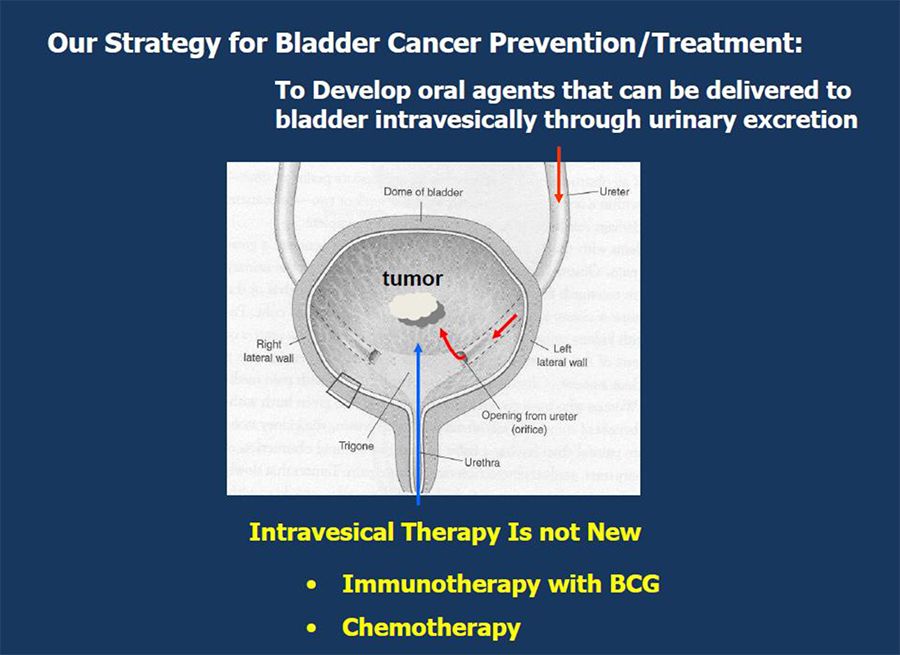Bladder cancer is the fourth most common malignancy in men and eighth most common in women. The majority of bladder cancers are detected as superficial without muscle invasion and are treated with transurethral resection. However the rate of recurrence is ~80%. Currently, patients who are at high risk are treated after surgery by immunotherapy, attenuated BCG, or chemotherapy. These therapies not only mandate transurethral delivery in order to prevent systemic toxic effects, but also have limited efficacy and significant local adverse effects. Thus, there is an ongoing unmet medical need for methods for bladder cancer therapy and prophylaxis, particularly for recurring bladder cancer.
Purified isothiocyanates (ITCs) such as allyl isothiocyanate (AITC) and sulforaphane (SF) found in such vegetable products as broccoli, broccoli sprouts, mustard seed powder, horseradish, and wasabi powder allow for a unique method of targeting and delivering an active drug specifically into the bladder for use as an anti-cancer agent in fighting bladder cancer recurrence and invasion. Oral administration of these products leads to a significant accumulation of the active drug selectively in the urinary bladder where it targets the cancer cells while sparing the normal bladder epithelium. This activity is seen at a relatively low dose (~1mg/kg/day x 21) in preclinical studies, making it feasible for long term administration in humans without causing adverse effects.
Tang L, Zhang Y, Jobson HE, Li J, Stephenson KK, Wade KL, Fahey JW. Potent activation of mitochondria-mediated apoptosis and arrest in S and M Phases of cancer cells by a broccoli sprout extract. Molecular Cancer Therapeutics 2006; 5: 935-944.
Munday R, Mhawech-Fauceglia P, Munday CM, Paonessa JD, Tang L, Munday JS, Lister C, Wilson P, Fahey JW, Davis W, Zhang Y. Inhibition of urinary bladder carcinogenesis by broccoli sprouts. Cancer Research 2008; 68: 1593-1600.
Bhattacharya A, Tang L, Li Y, Geng F, Paonessa JD, Chen SC, Wong MKKK, Zhang Y. Inhibition of bladder cancer development by allyl isothiocyanate. Carcinogenesis 2010; 31: 281-286.
Bhattacharya A, Li Y, Geng F, Munday R, Zhang Y. The principal urinary metabolite of allyl isothiocyanate, N-acetyl-S-(N- allylthiocarbamoyl)cysteine, inhibits the growth and muscle invasion of bladder cancer. Carcinogenesis2012; 33(2):394- 398
